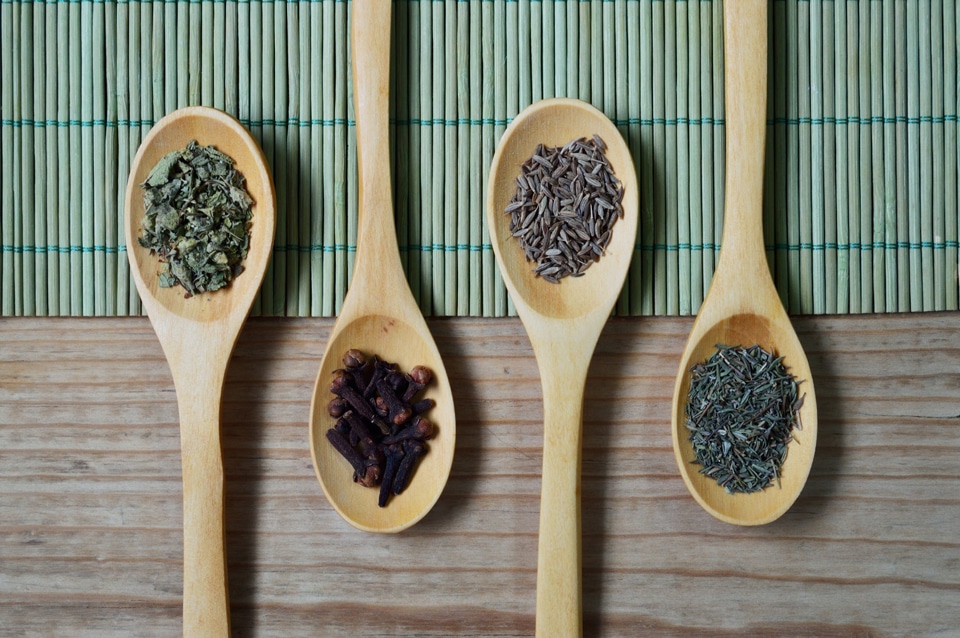4 minute read
For centuries, herbs were the people’s choice for medicine. While less common today, herbs are still used in drugs, drinks, and topical remedies. Drugs like morphine, quinine, and codeine all contain plant-derived ingredients, but herbs by themselves are no longer considered cure-alls.
With that in mind, certain plant-derived herbs and spices can be a valuable part of your health and fitness regimen. Here are 9 plants that are sure to enhance your quality of life.
Are Fresh Herbs Healthier Than Dried Herbs?
Health enthusiasts are naturally suspicious of anything that takes a long time to expire, but dried herbs aren’t less healthy than fresh ones. Dried herbs are at least as beneficial as fresh herbs, if not more so because the drying process concentrates the polyphenols and brings out more flavor.
Fresh herbs may work better for specific dishes, but if you can’t get your hands on them, dried is just as good. Plus, dried herbs have a much longer shelf life (2-4 years) than fresh (2-6 days).
It’s easy to get bulk herbs and spices from all over the world via fast shipping, so if you want to spruce up your cooking or medicine cabinet, order online instead of going to the supermarket.
The 9 Most Powerful and Healthy Herbs
While there is little to no scientific evidence that herbs cure serious diseases, the following herbs can help mitigate specific symptoms and are packed with vitamins and minerals.
1. Turmeric
The dense orange spice that’s often used in Middle-Eastern dishes is famous for its anti-inflammatory and antioxidant properties. Turmeric can also improve oxidative stress, which removes toxic free radicals from your body that are the catalysts for chronic diseases.
2. Ginger
Ginger is a well-known remedy for nausea and gastrointestinal issues. Similar to turmeric, ginger has anti-inflammatory properties and a high level of antioxidants. Although ginger can be used as an anti-nausea agent and antiemetic (anti-vomiting), it may also prevent cancer.
3. Peppermint
Although peppermint is primarily used as a flavoring agent, it’s also useful for its cooling effects, which soothe upset stomachs. Peppermint has antibacterial properties that may improve heart and lung health, and some studies have shown this herb makes for an effective muscle relaxer.
4. Cumin
Cumin became the talk of the town when it was pushed as a weight loss supplement due to its inclusion of thymoquinone, which keeps blood sugar stable and reduces inflammation. Besides weight loss, cumin also lowers your cholesterol, helps manage stress, and reduces fatigue.
5. Cinnamon
Cinnamon has several benefits as an antioxidant, antimicrobial, antidiabetic, anticarcinogenic, and anti-inflammatory spice. It’s possible that cinnamon reduces blood sugar levels because it can regulate glucose in the body. Cinnamon can also increase your cognitive ability.
6. Oregano
As another in the long line of antioxidant spices, oregano packs a lot of punch. Oregano is capable of strengthening the immune system, regulating blood sugar, reducing inflammation, improving insulin resistance, alleviating menstrual cramps, and fighting several cancers.
7. Cardamom
Cardamom is a seed that comes from plants in the ginger family. When used in tea or oil, cardamom can treat constipation, diarrhea, colic, dyspepsia, headaches, vomiting, epilepsy, and heart disease. Cardamom is antimicrobial, anti-inflammatory, and relaxes your muscles.
8. Chili Powder
Capsaicin, the phytochemical that gives chili powder its spicy flavor, may improve your heart and metabolic health. Scientists have confirmed that chili powder triggers a beneficial protein change in your body that’s integral to weight loss, but they aren’t sure why this occurs.
9. Parsley
The herb that’s used in everything, parsley, is still used as a therapeutic treatment for multiple diseases, such as cancer and diabetes. Parsley is full of antioxidants, carotenoids, and several other vitamins and minerals, including vitamin K, which helps lower your risks of bone fractures.






